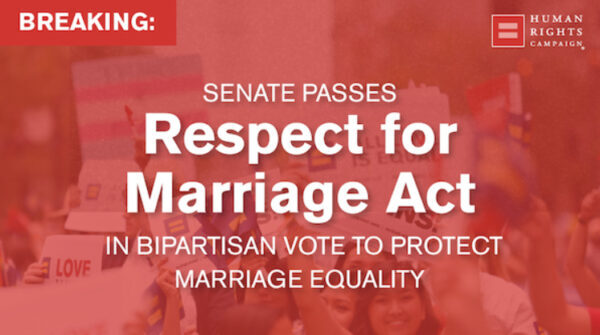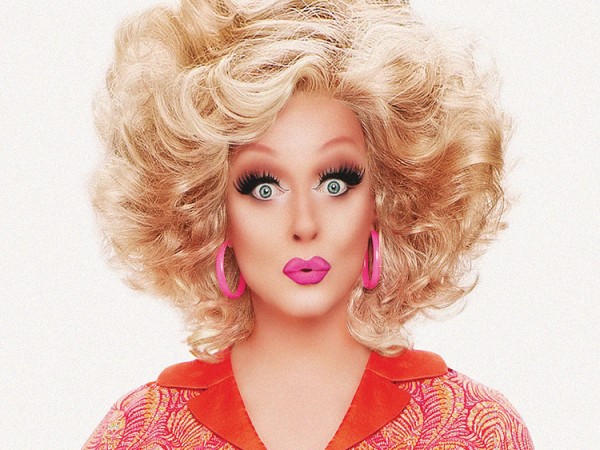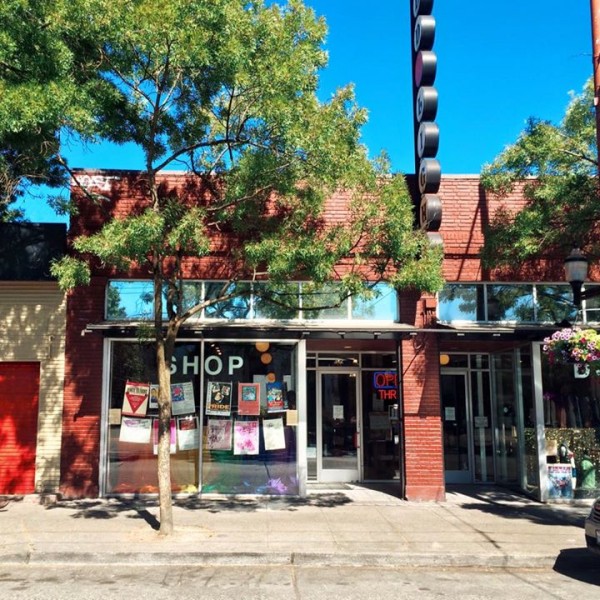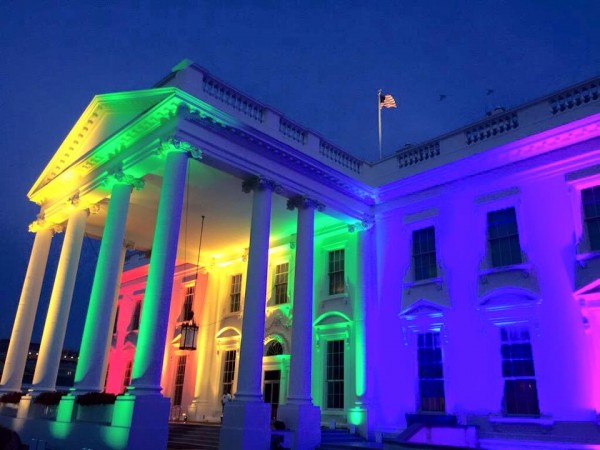Ed Note: We’re thrilled to welcome The Seattle Globalist to our family of contributors. Their uniquely Seattle perspective on the world mirrors our own commitment to bringing you every part of LGBTQ life. We look forward to more from them, and we’re confident you will too. – Les Sterling

Two men marry in Amsterdam in 2001, just after same-sex marriage was legalized (Photo from JeffPW, Wikipedia)
By Abby Higgins for The Seattle Globalist
After a vote in the Washington state Senate last night, we’re just a few small steps away from becoming the seventh state in America to approve same-sex marriage. As a long-time bastion of gay culture and gay rights activism, many believe it’s about time.
We Seattleites pride ourselves on being on the cutting edge of progress and liberalism. But globally, the trend toward extending marriage rights began over a decade ago, and has been picking up steam ever since.
The Netherlands became the first country to legalize same-sex marriage in 2001, and almost every year since then, another new country has followed suit.
Here’s a look at a few of the more unexpected examples of countries that beat Washington state to the punch.
Argentina

In 2010, Argentina became the first Latin American country to legalize same-sex marriage. The Catholic Church pressured the government not to pass the bill, but Argentinian president Cristina Fernandez de Kirchner advocated for it anyways. The debate in the Argentine legislature lasted through the night and into the next morning, but it was eventually passed. While nearly 70% of Argentineans support giving gay people equal rights, tens of thousands demonstrated against the passage of the bill, and gay marriage remains a contentious issue today.
Nepal
 In 2007, Nepal decriminalized homosexuality in a move that was widely interpreted as including the right to marry. It will likely be formalized in the country’s new constitution, set to be promulgated this spring. Despite its traditional conservatism, many Nepalis hope that this step could position the country as a gay travel destination and prop up its long-deflated tourism industry. Nepal has already hosted several prominent gay and lesbian weddings.
In 2007, Nepal decriminalized homosexuality in a move that was widely interpreted as including the right to marry. It will likely be formalized in the country’s new constitution, set to be promulgated this spring. Despite its traditional conservatism, many Nepalis hope that this step could position the country as a gay travel destination and prop up its long-deflated tourism industry. Nepal has already hosted several prominent gay and lesbian weddings.
South Africa
 When apartheid ended in the early ’90s, gay rights became part of the social change sweeping South Africa, explains Sean Casey, a former Coordinator of the Global Equality Network, an international LGBT rights initiative. “There was this wave of equality that allowed marriage equality to enter the constitution despite popular opinion.”
When apartheid ended in the early ’90s, gay rights became part of the social change sweeping South Africa, explains Sean Casey, a former Coordinator of the Global Equality Network, an international LGBT rights initiative. “There was this wave of equality that allowed marriage equality to enter the constitution despite popular opinion.”
Provisions in the post-apartheid constitution didn’t legalize same-sex marriage, but they forbid discrimination on the basis of sexual orientation. Subsequent court cases continued to strengthen the legal rights of gays and lesbians, including adoption, immigration and inheritance rights. South Africa fully legalized same-sex marriage in 2006, making it the first, and only, African country to do so.

You might have guessed some of the other countries on the list:Belgium, Spain, Portugal, Norway, Sweden, Iceland andCanada are all known for their liberalism in other areas. None of those countries harp on their belief in personal liberty quite as much as we Americans do, so it’s somewhat of a surprise that the US lags behind on this issue.
But many global gay rights activists question the emphasis on gay marriage in the fight for broader protections for gays and lesbians, particularly in countries where homosexuality is still punishable with harsh prison sentences and even in some cases, the death penalty.
“In most African countries, gay marriage is not the priority, and it’s viewed as something that’s dangerous and detrimental to a movement that’s just trying to get people safe and equal and heard” Casey explained.
He also emphasized that most everywhere around the world, legal protections do not always translate into a reality of social change.
My current home of Nairobi, Kenya is a fascinating example in the global cultural battle surrounding gay rights. Casey and I were able to meet for a drink in one of Nairobi’s well-known gay bars and comfortably discus Kenya’s many openly gay activists, its prominent club scene and the sixteen-some registered LGBT organizations in Kenya.
Among certain Kenyan circles, gay Kenyans enjoy surprising degrees of visibility, living a life that is a marked departure from their parents’ generation. The country is saturated with Western media and with constant internet access, and Kenyan youth are constantly on the pulse of global events.
In September, Nairobi hosted the country’s first openly gay film festival and attendance at the event was so high that people had to be turned away at the door. The festival did not shy away from such controversial issues as transgender rights, cross-dressing and even gay marriage.
And yet, in Kenya, the issue of same-sex marriage remains volatile and completely off the table. “Legalization of gay marriage in North America and Europe is inevitable” but in the rest of the world, Casey explained, that is far from true.
In neighboring Uganda, a bill was introduced to criminalize homosexuality, making it punishable with the death penalty (inspired by the teachings of an American Evangelical group) and then a few years later, prominent gay rights activist David Kato was murdered.
Casey is right that in places like Uganda, fighting for same-sex marriage is putting the cart before the horse in a potentially dangerous way. But for millions around the globe, the true mark of equality will be the moment when anyone can put a ring on their loved one’s finger, regardless of who they are.
——

















